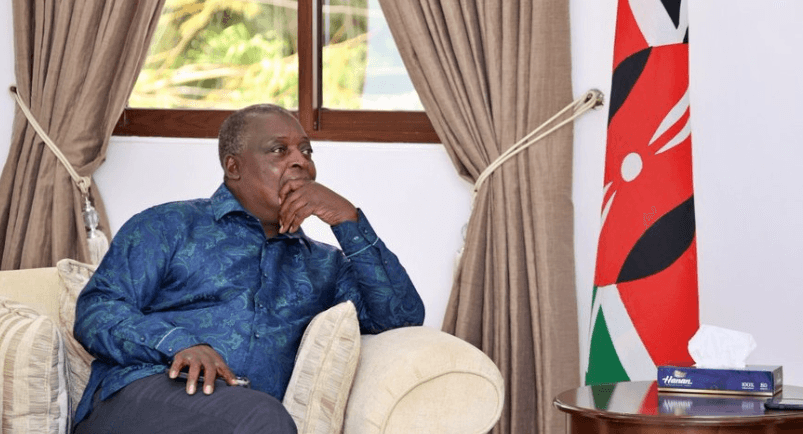Kenya stands on the brink of a significant political transformation, driven by the dynamic energy of Generation Z. Known for their digital savvy, global perspectives and acute awareness of socioeconomic challenges, this cohort has become a formidable force demanding change.
High unemployment, limited opportunities and a feeling of political disenfranchisement have fuelled the so-called 'Gen Z crisis', reshaping the nation's political discourse. In response, the idea of a broad-based government is emerging as a potential solution, promising a more inclusive and responsive administration.
The connectivity among Gen Zs has amplified their frustration with Kenya's slow progress on critical issues such as unemployment among graduates and the inconsistent quality of education and healthcare.
Social media platforms have given this generation a powerful voice, leading to online activism and street protests that highlight their dissatisfaction with current governance. They are calling for transparency, accountability and a government that genuinely represents their interests.
The concept of a broad-based government involves a wide range of political parties, civil society organisations and representatives from marginalised groups. This approach aims to create a more inclusive governance structure that reflects Kenya's diverse population, including youth, women and ethnic minorities.
By incorporating various perspectives and expertise, a broad-based government could potentially address the concerns of a broader demographic and foster a more harmonious political environment. The Kenya Kwanza administration has included four members from ODM in the Cabinet. These appointments cover critical dockets such as National Treasury, Energy, Cooperatives and MSMEs and Mining and Blue Economy.
ODM, a prominent opposition party, has historically been critical of Kenya Kwanza policies. By integrating ODM members into the government, there is an attempt to bridge the political divide and foster cooperation. This move could lead to more balanced decision-making and policies that cater to a wider range of citizens' needs. However, it also presents challenges, such as maintaining the integrity of opposition roles and ensuring that ODM's participation does not dilute its critical voice.
The impact of including ODM members in the Cabinet could be profound. Traditionally, the opposition has played a crucial role in holding the government accountable and offering alternative policy perspectives. Integrating opposition members might blur the lines between governance and opposition, potentially weakening the latter's capacity to critique and provide checks and balances.
This could lead to reduced intensity in political debates and diminish the robustness of democratic discourse. The challenge will be to maintain a healthy opposition that continues to provide constructive criticism and alternative solutions while participating in governance.
Before the Gen Z crisis, Kenya's experience with broad-based governance was exemplified by the Grand Coalition government formed in 2008. This coalition emerged from the political turmoil and violence of the 2007 elections, uniting President Mwai Kibaki’s Party of National Unity and Raila Odinga’s ODM in a power-sharing arrangement.
The Grand Coalition aimed to address Kenya's ethnic and political divide by including a range of political factions and representatives. It achieved notable successes, such as the drafting of a new constitution in 2010, which introduced significant reforms.
However, the coalition also faced challenges, including internal conflicts and governance inefficiencies, revealing the complexities of managing a diverse coalition and the limitations of broad-based governance in achieving long-term stability.
Globally, the success of broad-based governments has been mixed. In South Africa, the post-apartheid government, formed by the African National Congress and including various political factions, initially promoted national unity and reconciliation. This inclusive approach helped stabilise the country and foster economic growth and social development.
However, challenges such as economic inequality and corruption have persisted, revealing the limitations of broad-based governance in achieving all its intended goals.
In Lebanon, the power-sharing arrangement among different religious and political groups has helped maintain relative peace and stability. Yet, this model has also been criticised for entrenching sectarian divides and fostering political paralysis, demonstrating that broad-based governance can sometimes exacerbate existing tensions rather than resolve them.
Conversely, in Israel, the coalition government model, which often includes a diverse array of parties, has faced difficulties in maintaining cohesion and implementing effective policies. Frequent elections and government instability have been notable outcomes, highlighting the challenges in a highly fragmented political landscape.
The post-war Iraqi government is another example where a broad-based approach aimed at including Sunni, Shia and Kurdish factions has struggled to foster national unity and effective governance. The result has often been political gridlock and heightened sectarian tensions, underscoring the complexities involved in managing a diverse coalition.
The push for a broad-based government therefore represents a response to the Gen Z crisis and an opportunity to reshape the country's political landscape. The potential benefits include increased political stability, enhanced representation and strengthened democracy.
However, achieving true inclusivity requires significant political will and cooperation from all parties involved. Traditional political elites may resist changes that threaten their power, and the process of coalition-building can be complex and contentious. There is also the risk of tokenism, where marginalised groups are included in name only, without real influence over decision-making.
Ultimately, the success of the broad-based government will depend on the ability of all stakeholders to navigate these challenges and embrace inclusivity and reform. As the country grapples with the demands of its young population, it will need to balance the integration of diverse perspectives with the need for effective governance.
The Gen Z uprising is not just a call for change; it is a call for a new era of governance that is more inclusive, accountable and responsive to the needs of all Kenyans. As Kenya navigates this critical juncture, its future will hinge on its capacity to adapt and respond to the aspirations of its youth, setting a precedent for governance in the region and beyond.
Management consult and governance specialist, [email protected]
















